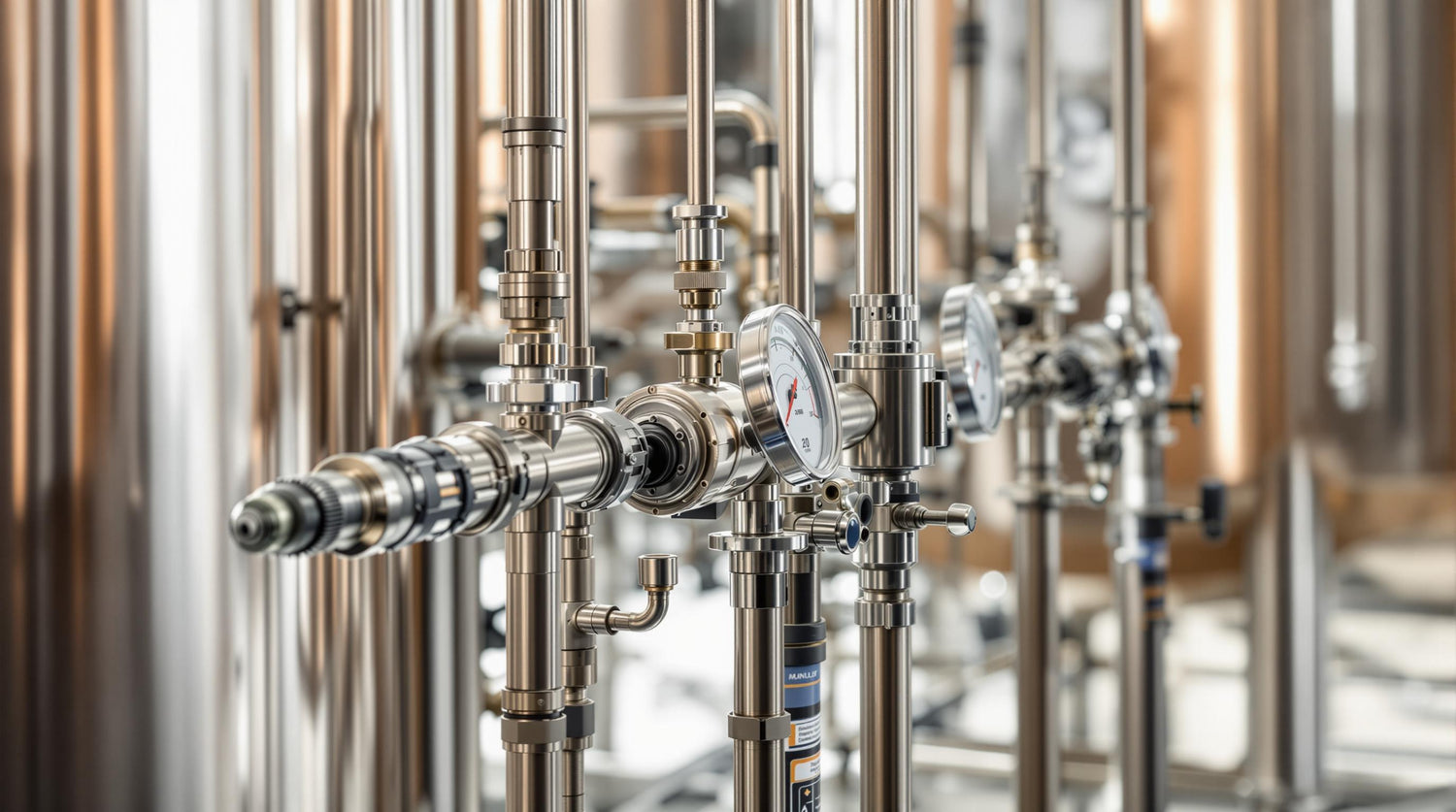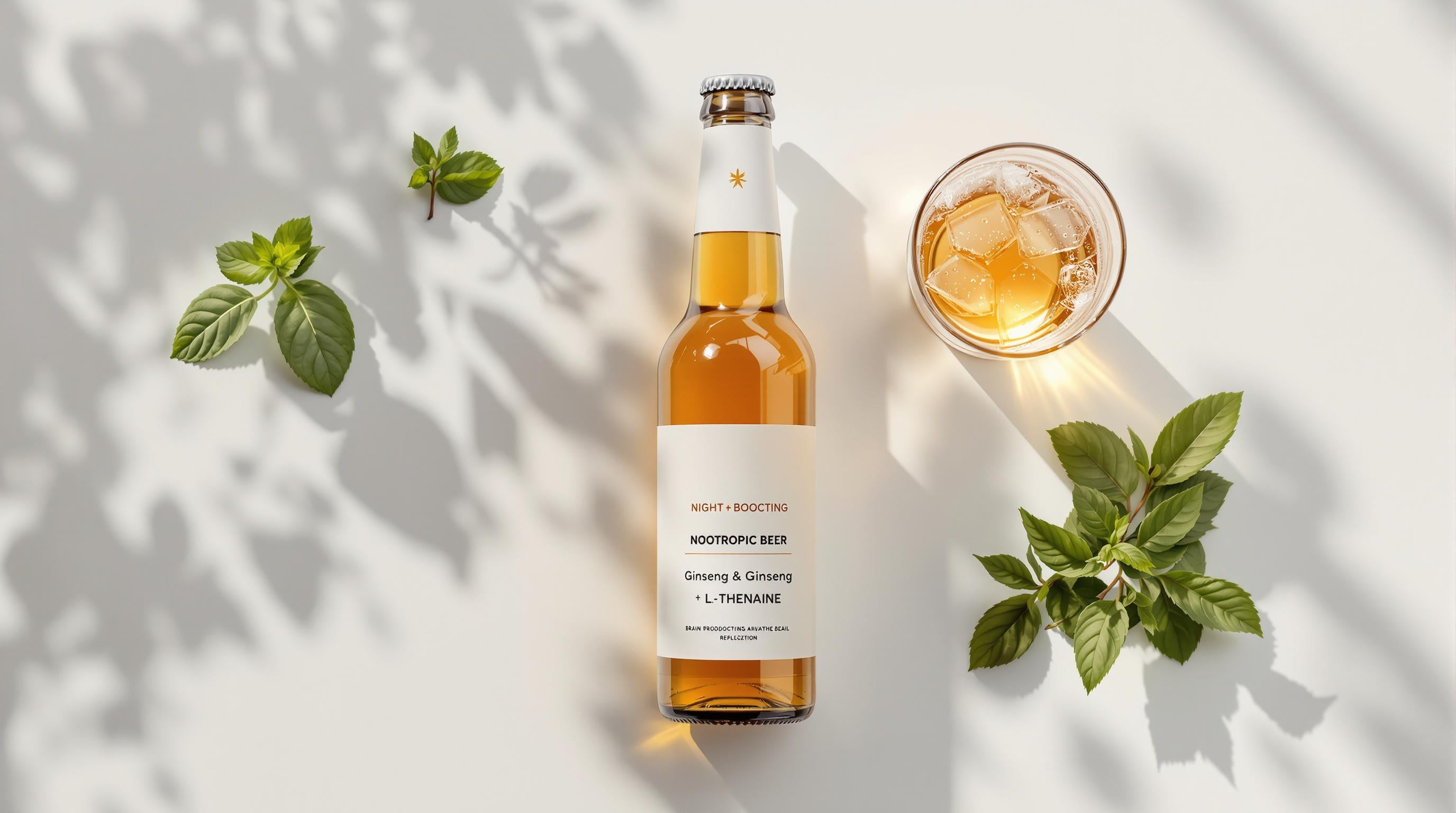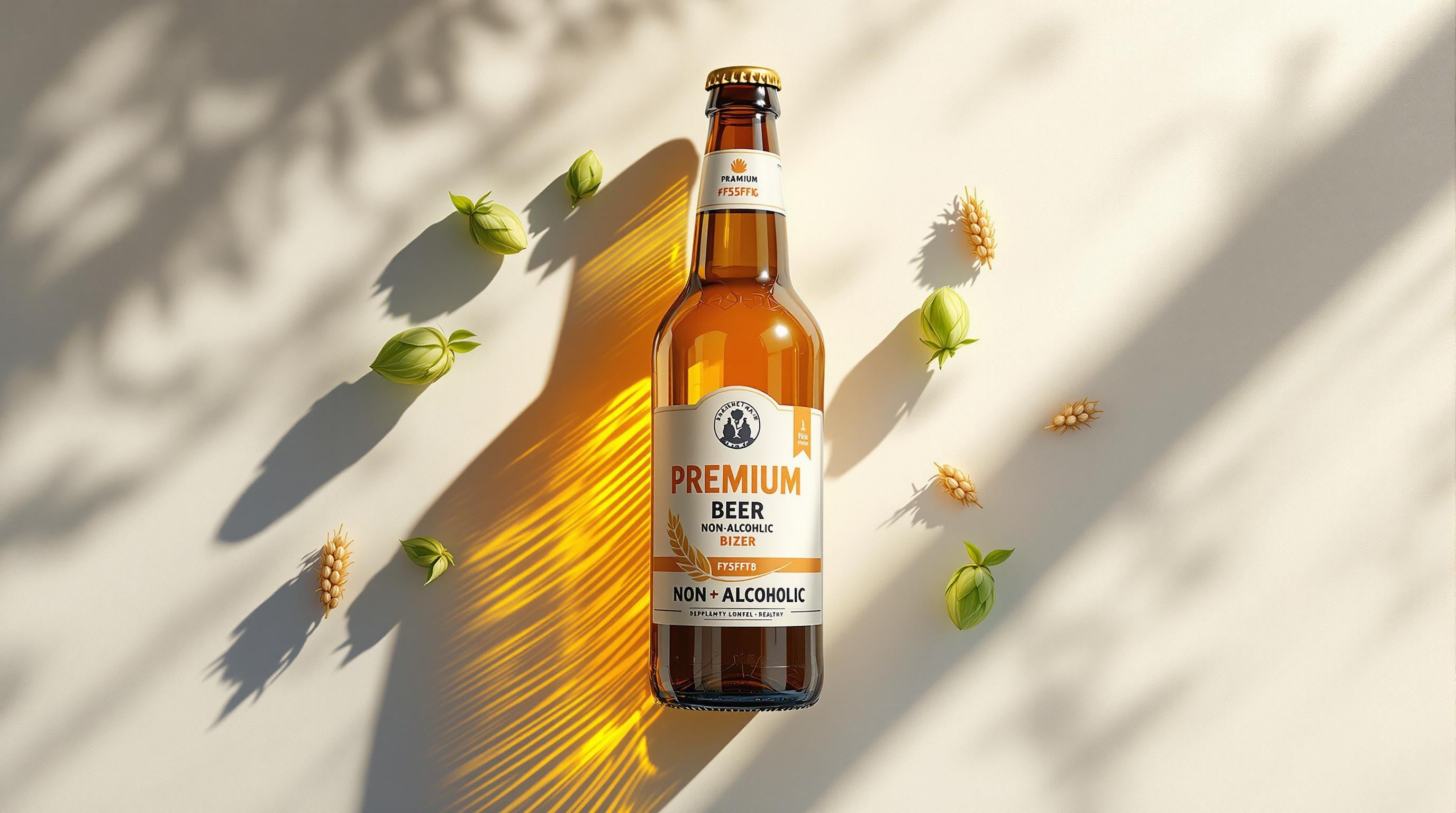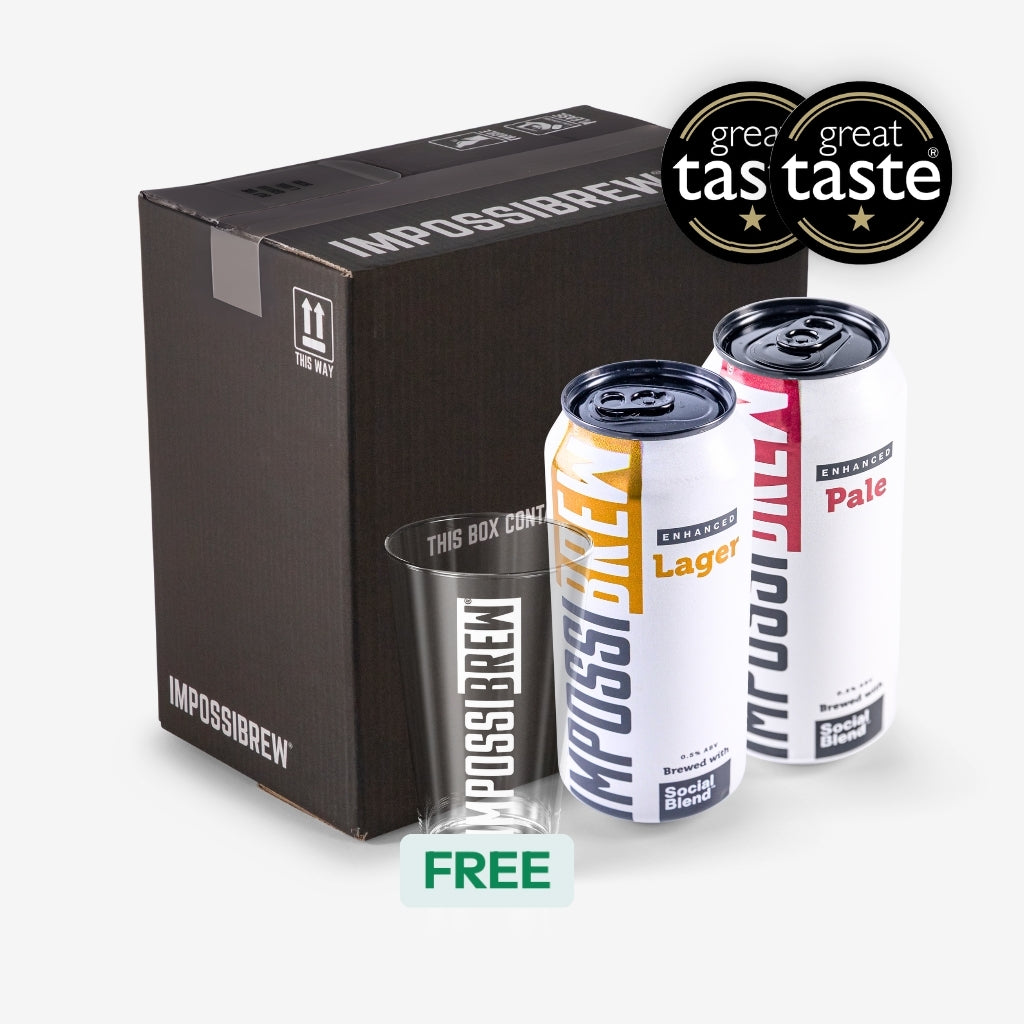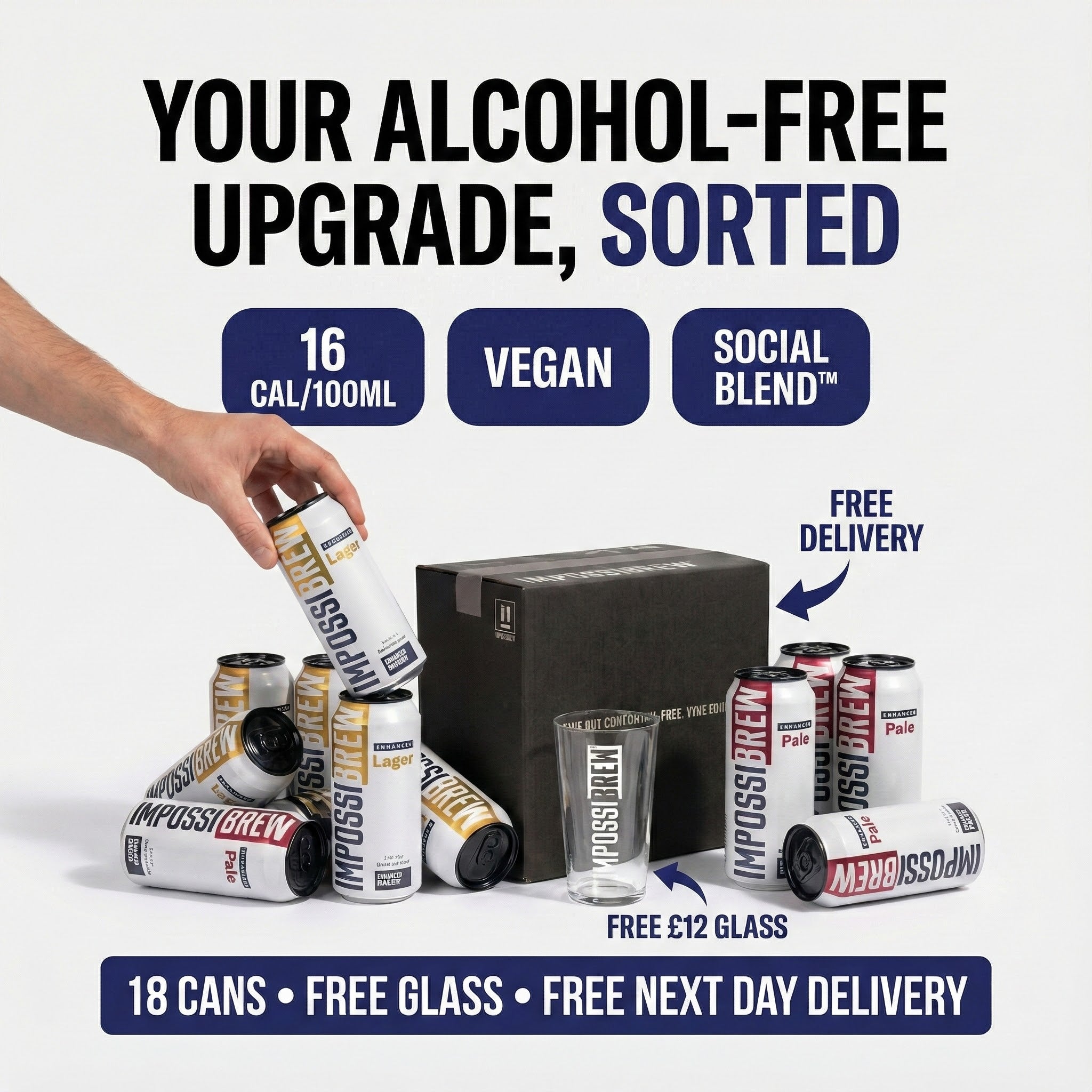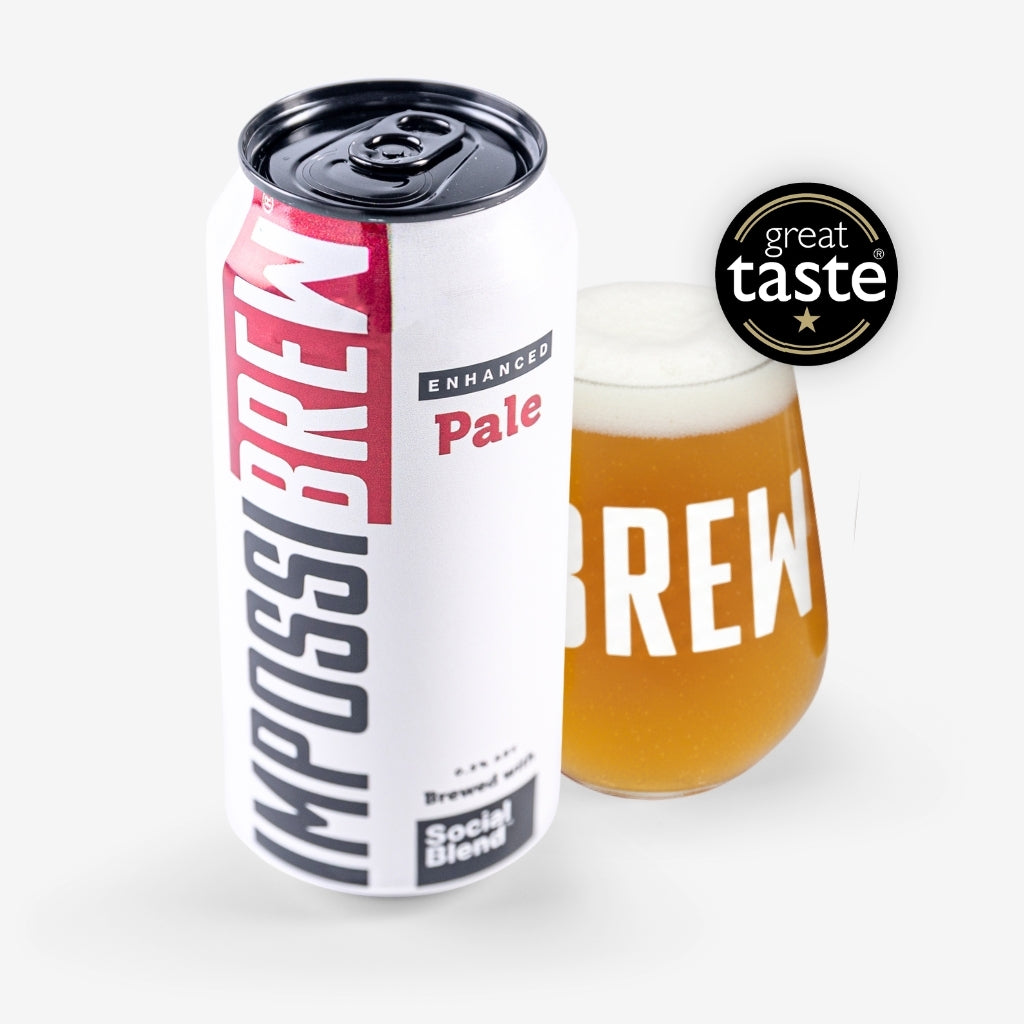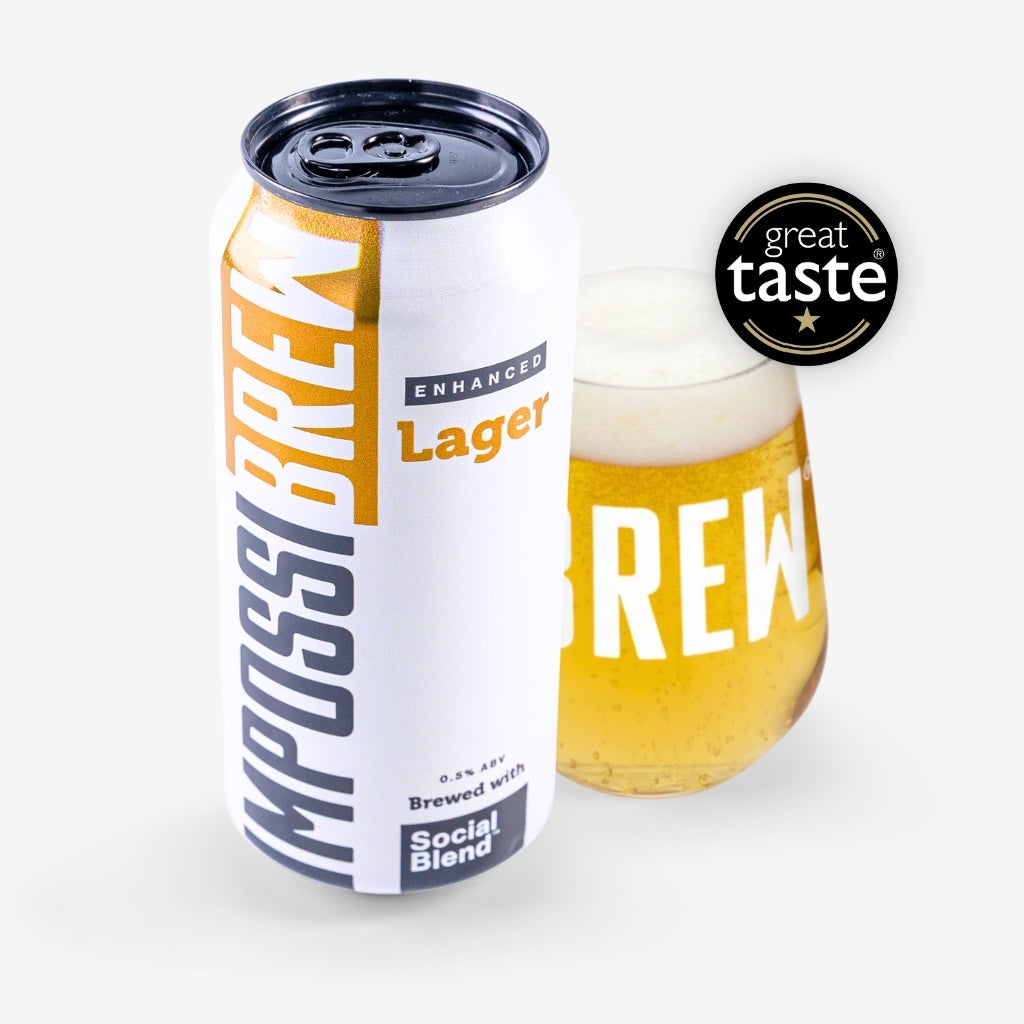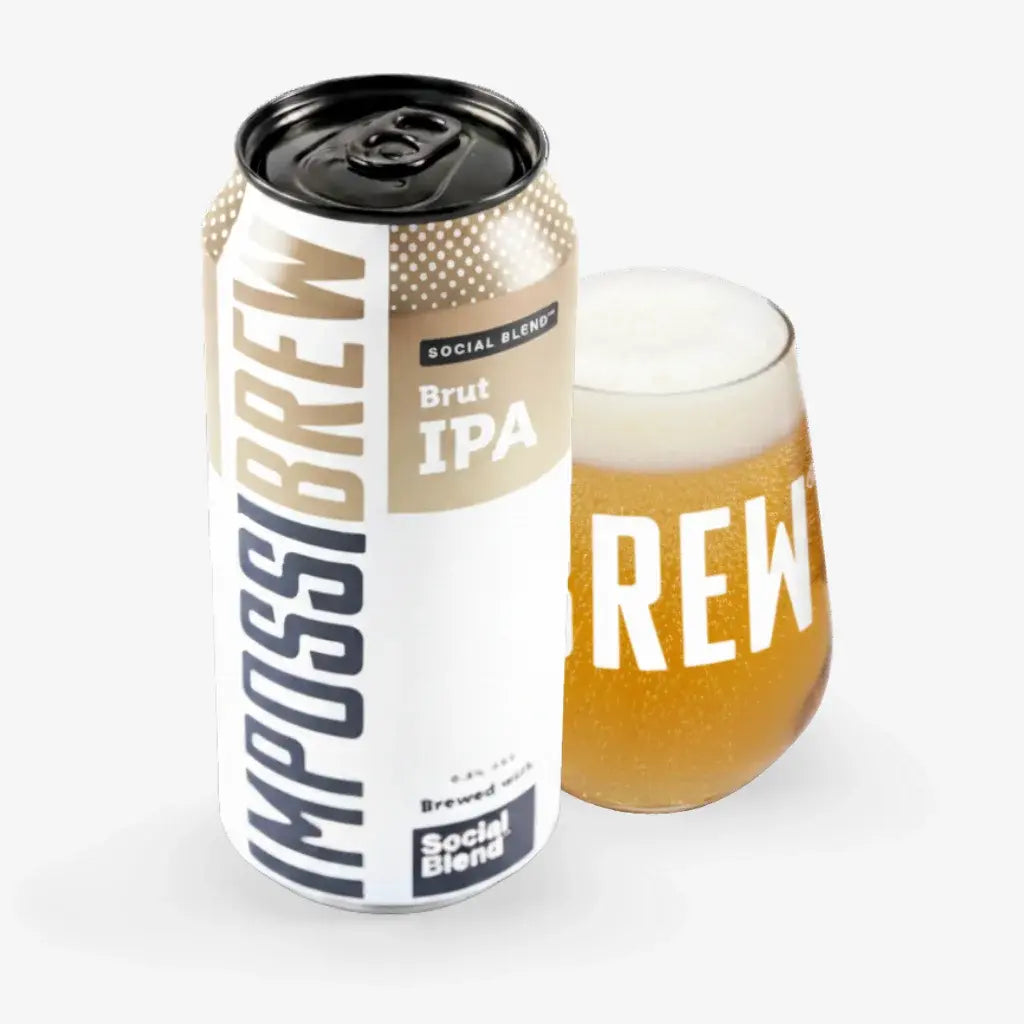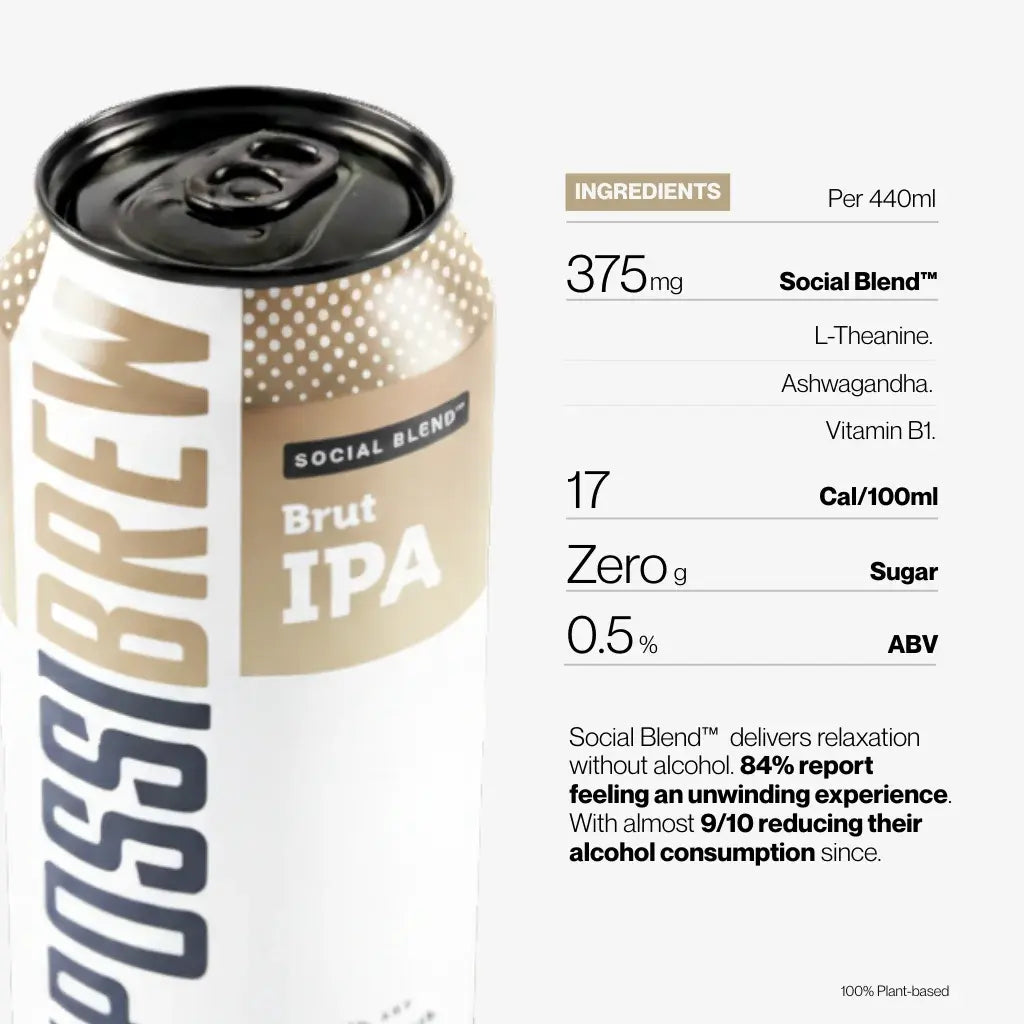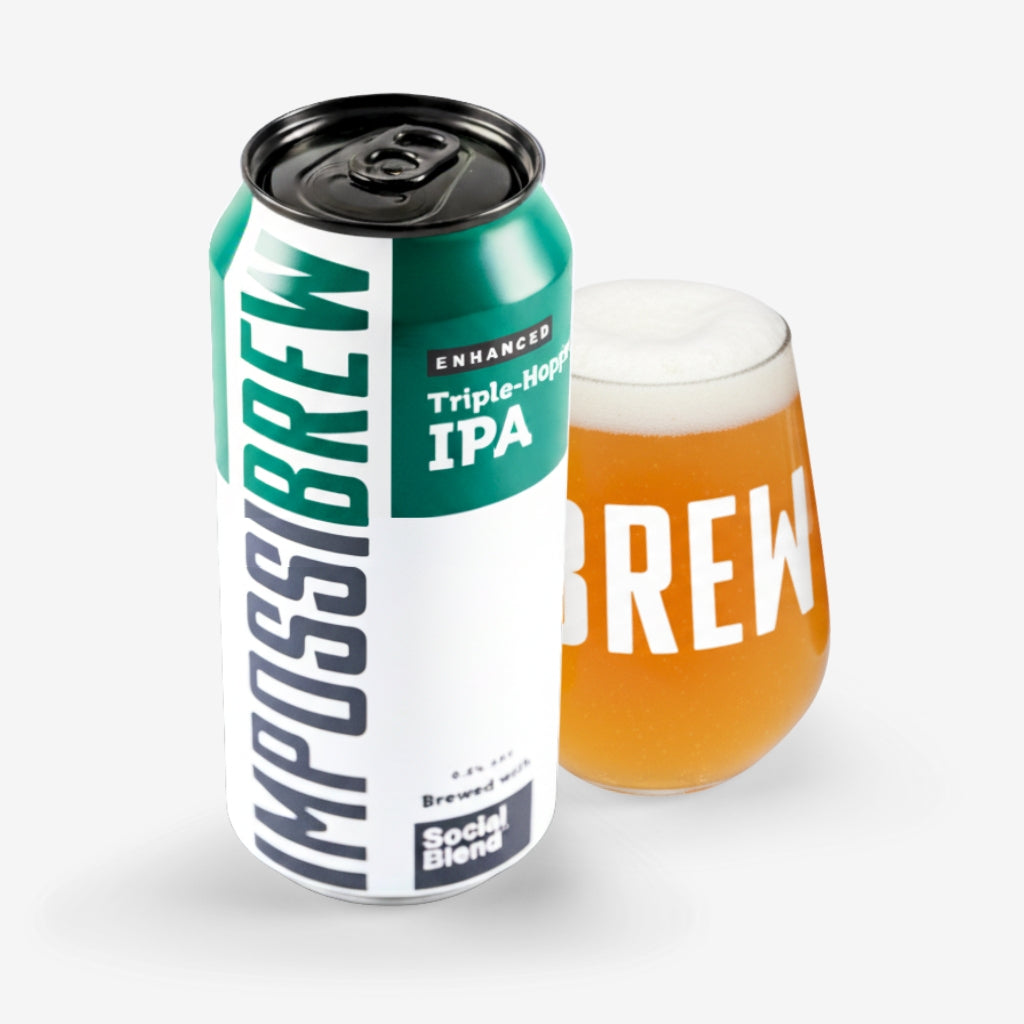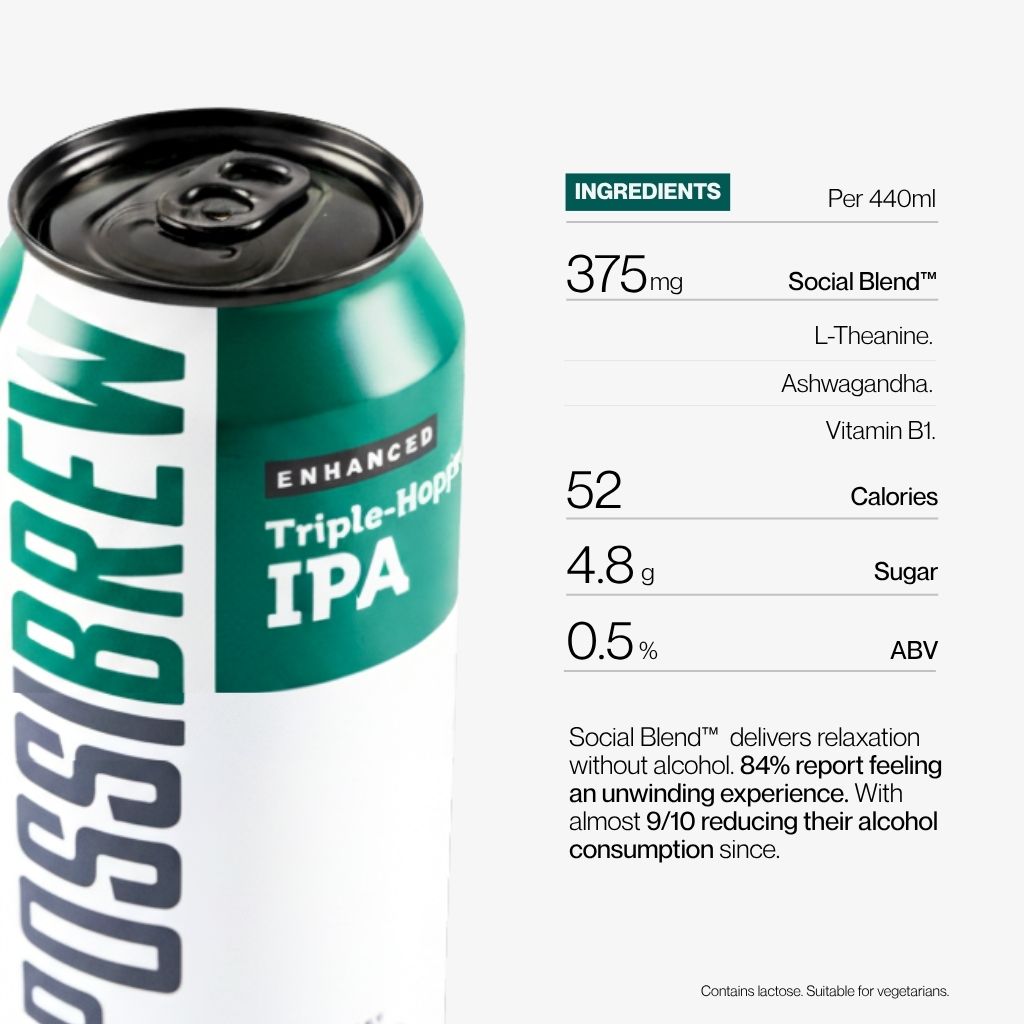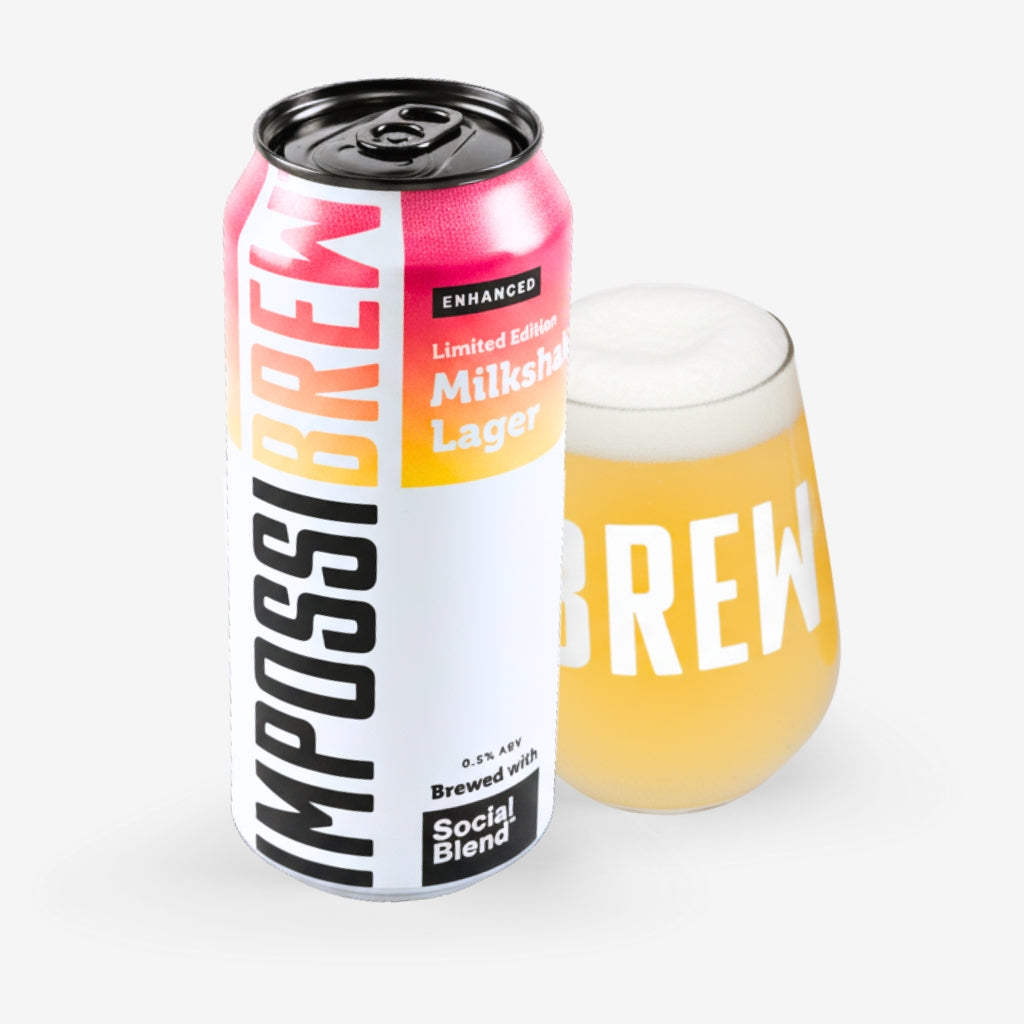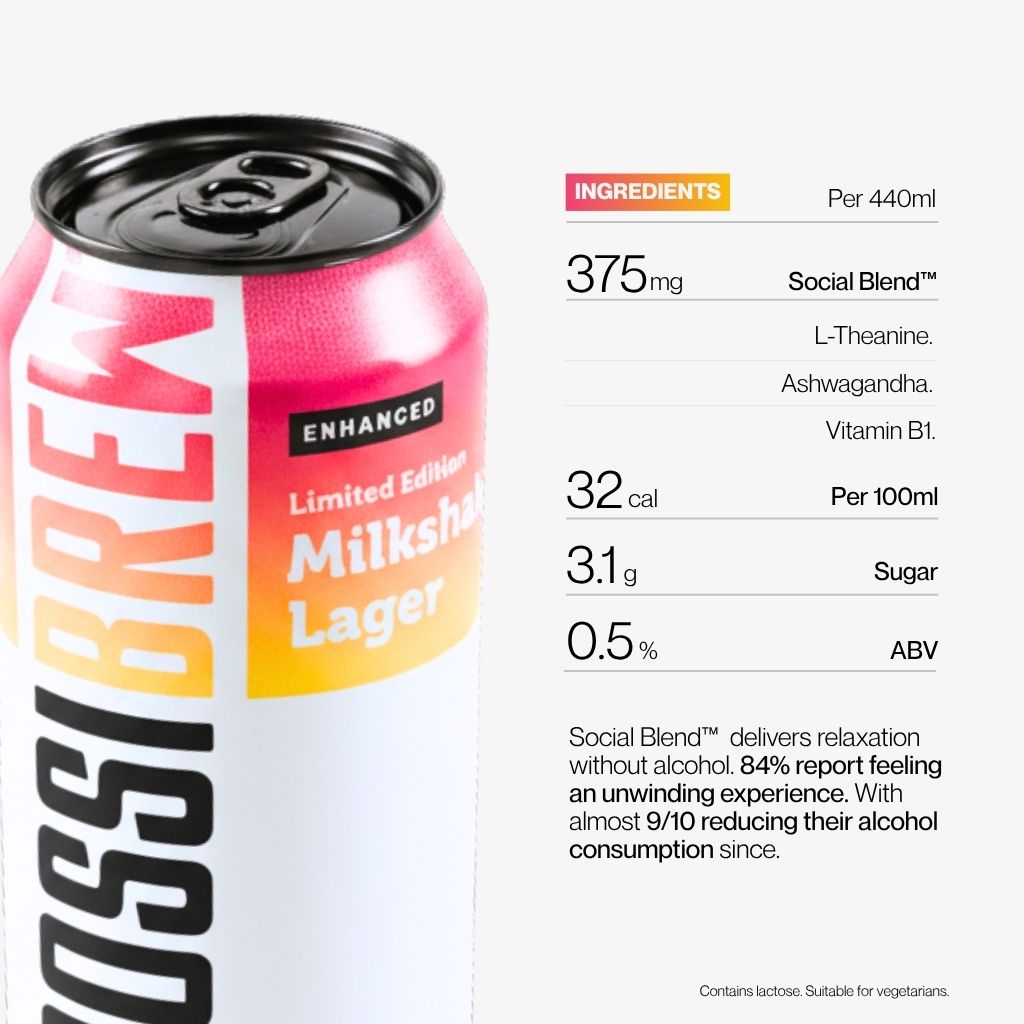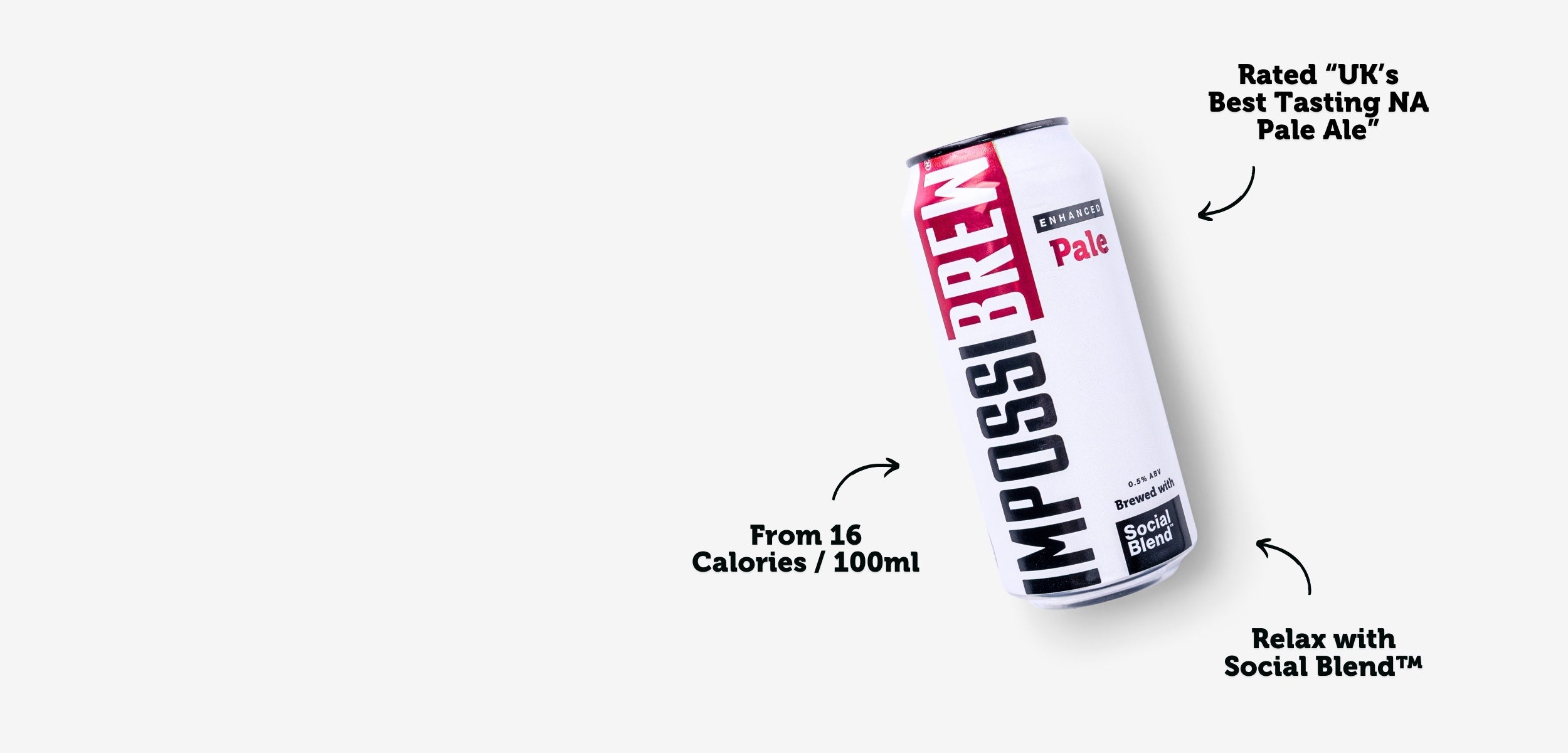Breweries produce more CO2 during fermentation than they need for carbonation - about 4kg per hectoliter versus the 3kg required. Modern CO2 recovery systems solve this by capturing, purifying, and reusing the excess gas. This reduces emissions by up to 50% and can cut CO2 costs in half.
Key Benefits:
- Cost Savings: Systems often pay for themselves in 2-4 years, saving breweries like Alaskan Brewing $500,000 annually.
- Environmental Impact: Medium breweries can reduce emissions by 1,500-2,000 tons annually, while large ones save up to 10,000 tons.
- New Revenue: Excess CO2 can be sold to industries like agriculture and manufacturing.
These systems are transforming brewing operations, offering a practical way to reduce waste, save money, and even generate income.
CO2 in the Brewing Process
How Fermentation Creates CO2
During fermentation, yeast transforms malt sugars into ethanol and carbon dioxide (C6H12O6 → 2 C2H5OH + 2 CO2) [1]. The amount of CO2 produced depends on the beer's sugar content and the yeast strain used, which can vary by beer style. This natural process presents both operational benefits and environmental concerns.
Impact of CO2 Release
Although CO2 is a crucial part of brewing, releasing it unchecked can have serious consequences. For smaller craft breweries, fermentation can account for up to 50% of their total emissions, while for larger industrial breweries, this figure is typically around 25-35%. On a global scale, brewing generates 28 million metric tons of CO2 annually [6][7], adding to climate challenges.
Because of this, fermentation CO2 is a key focus for recovery systems, which will be explored in later sections.
Leading Experts in Craft-Scale CO2 Recovery
CO2 Recovery Methods
Modern breweries are turning to pre-assembled systems to manage the 1kg CO2 surplus per hectoliter mentioned earlier, converting what was once waste into a usable resource. One standout option is Earthly Labs' CiCi units, widely adopted by craft breweries. These systems can recover up to 5,000 pounds of CO2 every month [1].
Collection Equipment
The capture process starts with specialized equipment, which includes:
- Collection hoods and pipes connected to fermentation tanks
- Foam traps to remove liquid droplets
- Multi-stage scrubbers
- Dehumidification systems
- High-pressure compressors [2]
For example, The Alchemist Brewery uses a system that recovers enough CO2 to package 1.8 million cans each year [8].
Processing and Storage Steps
After collection, the CO2 goes through a multi-step purification process to meet food-grade standards, achieving 99.9% purity [6]. Here's how it works:
| Processing Stage | Function | Components |
|---|---|---|
| Initial Filtration | Removes particles | Foam traps, primary filters |
| Purification | Eliminates contaminants | Scrubbers, carbon filters |
| Dehumidification | Removes moisture | Industrial dehumidifiers |
| Compression | Prepares for storage | High-pressure compressors |
| Quality Control | Verifies purity | Gas chromatography |
Once purified, the CO2 is stored in insulated, pressurized tanks kept at -20°C (-4°F) and 300 psi. This ready-to-use CO2 serves brewing operations and other applications, ensuring a steady supply for tasks like carbonation, which will be discussed later.
Uses for Recovered CO2
Brewery Operations
Recovered CO2 plays a key role in brewery operations, cutting down the need for purchased gas. One of its main uses is beer carbonation, where purified CO2 is reintroduced to ensure the perfect fizz and mouthfeel. This helps brewers maintain consistent carbonation levels across different beer styles while keeping quality in check.
Some key uses in breweries include:
- Controlling carbonation for consistent products
- Purging tanks to eliminate oxygen during packaging
- Powering automated cleaning systems
Alaskan Brewing Co. offers a great example of the benefits of CO2 recovery. Since installing their system in 2015, they've captured 95% of the CO2 produced during fermentation. This has saved them over $500,000 annually on gas and transportation costs[4].
Sales to Other Industries
Excess CO2 opens up opportunities for breweries to sell to other industries, creating additional revenue streams. The CO2 recovered during fermentation is high-purity and meets food-grade standards, making it suitable for a variety of uses.
Blindman Brewing, based in Lacombe, Alberta, captures around 100 metric tons of CO2 every year. Their $200,000 system pays for itself in just three years through a combination of gas savings and selling surplus CO2[5].
Selling CO2 also helps reduce emissions further. Blindman Brewing’s approach highlights the demand across industries such as:
| Industry | Applications | Requirements |
|---|---|---|
| Agriculture | Greenhouse CO2 enrichment | Regular supply |
| Food Production | Beverage carbonation | Food-grade purity |
| Manufacturing | Welding, industrial cooling | Technical grade |
| Water Treatment | pH adjustment, process control | Chemical grade |
| Cold Chain | Dry ice production | Chemical grade |
sbb-itb-a752bf8
Success Stories
Real-world examples show how breweries can use CO2 recovery to cut costs and reduce environmental impact. Here are two standout cases:
Blindman Brewing Results
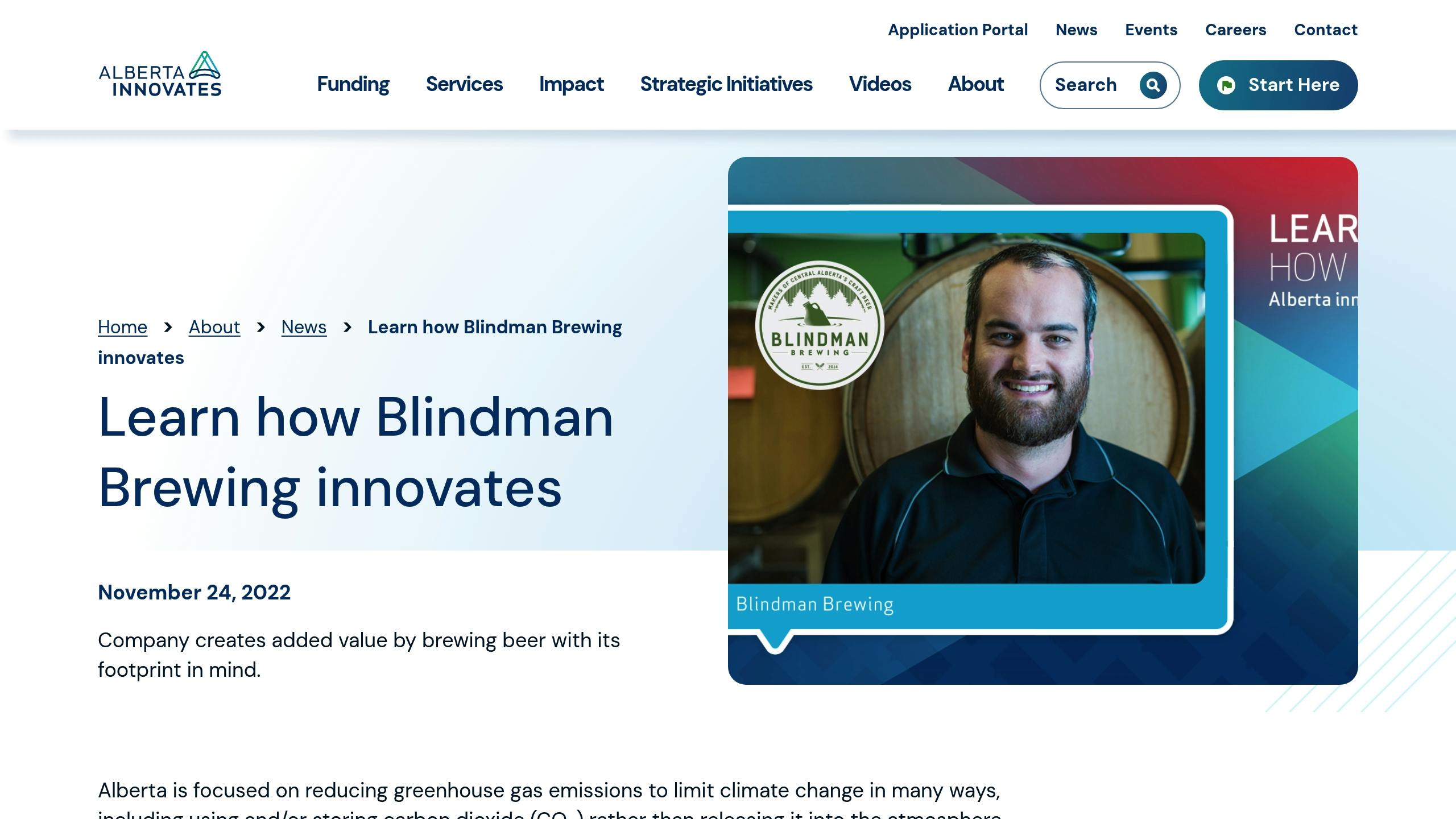
Blindman Brewing made history as the first small brewery in Canada to adopt carbon capture technology[5]. Using a compact Earthly Labs system, they recover enough CO2 to stop buying it from external suppliers. They've also teamed up with data collection partners to fine-tune industry benchmarks[5].
Kirk Zembal, the brewery's co-founder, has collaborated with Olds College to gather performance data that can benefit other breweries in the industry[5].
Kaiserdom Brewery System
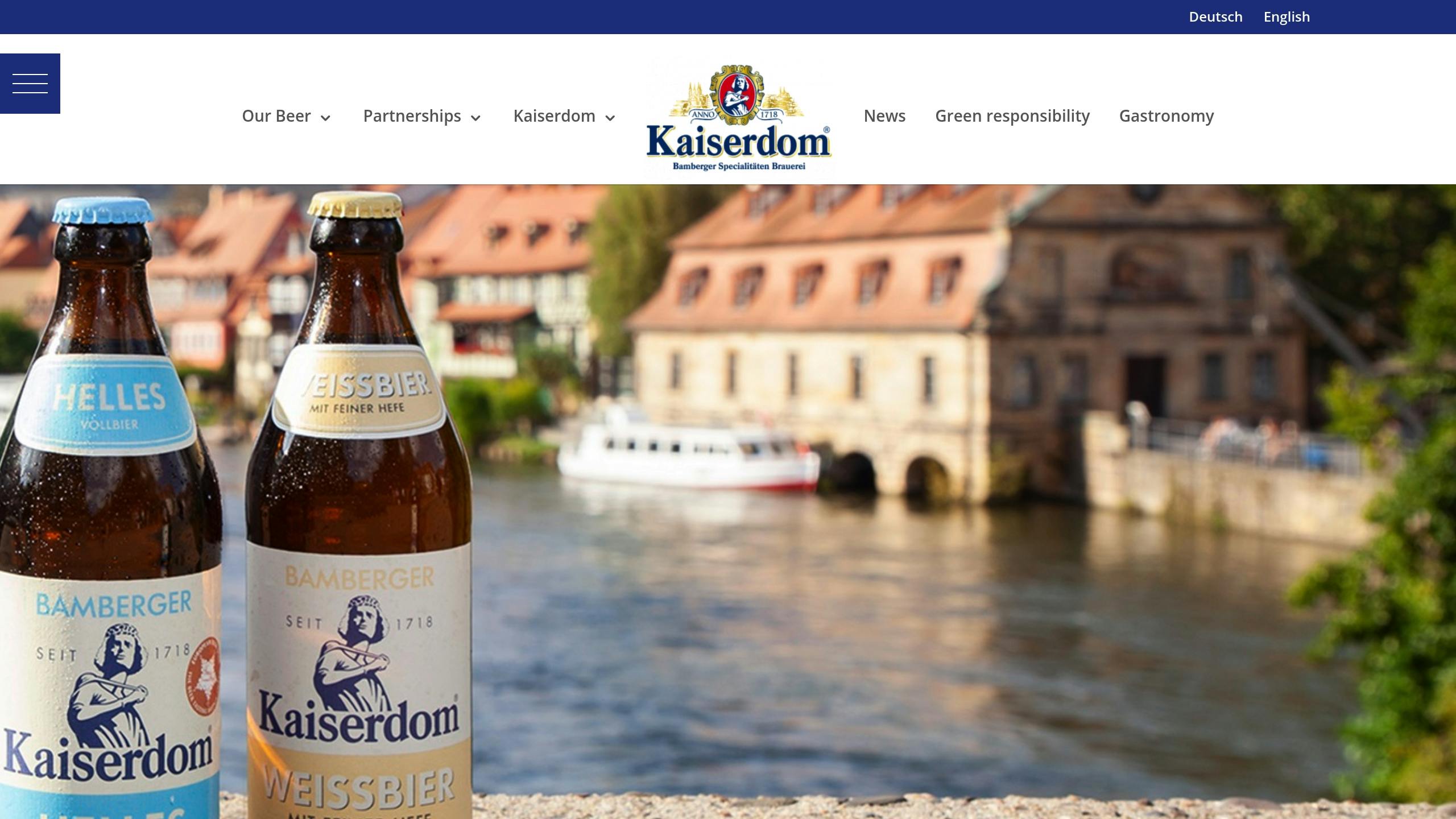
In 2020, Kaiserdom Brewery introduced a system developed with academic partners that allows them to fully meet their CO2 needs. By applying advanced purification methods, they ensure their beer maintains consistent quality[9]. These methods align with the purification standards discussed earlier in the Processing and Storage Steps section.
These examples highlight how breweries of different sizes can successfully adopt CO2 recovery systems, reinforcing the earlier points about their practical application in brewing operations.
Cost and Climate Impact
Closing the CO2 loop offers measurable benefits, balancing both financial and environmental priorities.
Financial Results
These systems often pay for themselves within 2-4 years. For larger breweries producing over 1 million hectoliters annually, the return on investment can happen in as little as 18 months. Fluctuations in CO2 prices can further increase savings by up to 50%. A great example is Alaskan Brewing, which saves $500,000 every year - a clear indication that these systems can scale effectively across different operations.
Recovered CO2 has also opened up new revenue opportunities for breweries.
CO2 Reduction Numbers
The emissions reductions are significant, with Blindman Brewing capturing 100 tons annually. On a broader scale, industry-wide figures illustrate the impact:
| Brewery Size (Annual Production) | Annual CO2 Reduction |
|---|---|
| Medium (500,000 hl) | 1,500-2,000 tons |
| Large (1,000,000+ hl) | 10,000 tons |
These reductions highlight how CO2 recovery is becoming a key practice for breweries dedicated to reducing their environmental footprint while maintaining efficient closed-loop systems as outlined earlier.
Conclusion
The brewing industry is making strides by adopting CO2 recovery systems, which offer both environmental and financial benefits. For example, Sierra Nevada Brewing Co. has implemented a system that captures 99% of fermentation CO2, resulting in $400,000 in annual savings [2].
These systems make financial sense, with a return on investment typically achieved within 2-4 years, thanks to reduced costs [1]. Additionally, selling excess recovered CO2 to other industries can open up new revenue opportunities [3]. This approach shows that sustainability and profitability can go hand in hand.
As this technology continues to develop, it not only raises the bar for sustainable brewing but also serves as a practical model for other industries. It aligns with the brewing sector's broader push toward closed-loop systems, as discussed earlier [3].
FAQs
How much CO2 does beer fermentation produce?
Beer fermentation produces about 4kg of CO2 per hectoliter[1]. This opens the door for breweries to reuse this gas, potentially becoming self-reliant in CO2 and even turning it into a source of income. For instance, breweries like Blindman Brewing have successfully implemented systems to recover and reuse fermentation CO2.
Modern CO2 recovery systems can capture up to 100% of emissions[4]. Kaiserdom Brewery is an example of how these systems can help breweries manage their CO2 emissions effectively. This recovered gas can then be used across various brewery operations, including the following:
| Application | Purpose |
|---|---|
| Counter-pressure Filling | Prevents oxidation |
| Draft Systems | Powers tap line operation |
| pH Adjustment | Controls water chemistry |

